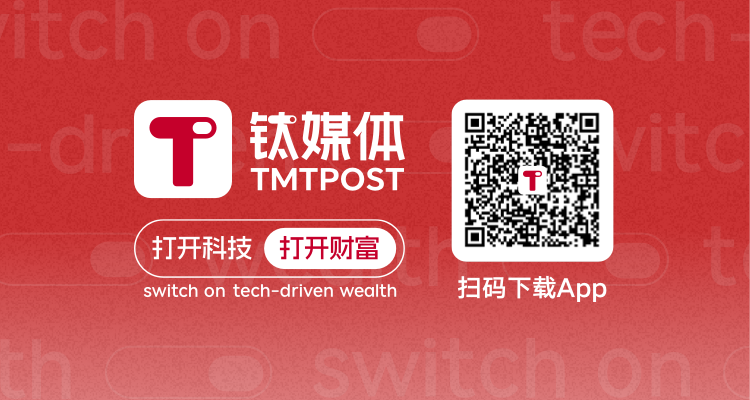TMTPOST -- Chinese electronics giant Xiaomi has terminated Wang Teng less than 10 months after promoting him to general manager of its domestic marketing department, citing leaks of confidential information and serious disciplinary violations, including conflicts of interest. The company confirmed the move in an internal email, stating that the dismissal was in line with Xiaomi’s corporate regulations.
Wang joined Xiaomi in 2016 and became product director of the company’s sub-brand Redmi in March 2020. On December 31 last year, he was promoted to marketing GM for China while concurrently serving as GM of Redmi, according to his Weibo account.
On social media, Wang expressed regret over the incident: “I’m very ashamed and apologize to everyone. I made some mistakes and accept the due consequences. I am grateful to Lei Jun, Xiaomi’s founder and CEO, and other company leaders for their guidance and trust over the years. I am sad to leave the firm, but I will always support Xiaomi and Redmi.”
Lei Jun has publicly praised Wang multiple times, once describing him as “an all-rounder among Xiaomi’s young managers” who has held four different roles over his eight-year tenure.

AI-generated image
Wang, a mid-level manager at level 21, had been a key figure within Xiaomi’s marketing and sub-brand leadership structure. His dismissal comes amidst a broader wave of anti-corruption initiatives across major Chinese tech companies.

Just three days before Xiaomi’s announcement, ByteDance reported the results of its own internal anti-corruption campaign, disclosing that 100 employees had been dismissed for violating company regulations. Of those, 18 were publicly named for serious offenses, including criminal activity and actions that maliciously harmed the company, and eight were handed over to judicial authorities.
A compliance professional told AsianFin, “Even at major tech companies, it is extremely difficult to hand over employees suspected of criminal activity to law enforcement. The challenge isn’t identifying misconduct but managing the manpower and resources required. Corruption cases in internet companies are hard to investigate and costly to pursue.”
The coordinated efforts by Xiaomi and ByteDance reflect a broader trend of major Chinese tech companies actively combating internal corruption, signaling that integrity and governance are taking center stage in corporate operations.
Wang’s case is part of a sustained anti-corruption effort within Xiaomi. In 2021, the company investigated 139 cases of violations and misconduct, resulting in 19 employee dismissals, 9 resignations, 8 cases handed over to judicial authorities, and 69 warnings.
Significant disciplinary actions have continued in subsequent years. In 2024, two regional general managers from Xiaomi’s International Business Department were dismissed for financial misconduct and bribery, with criminal and civil proceedings initiated. Likewise, three former employees of Xiaomi Auto were permanently blacklisted and faced legal action for participating in unauthorized external seminars and disseminating misleading information.
Xiaomi’s Security Supervision Department oversees global integrity reporting and actively encourages whistleblowing, offering rewards ranging from 5,000 to 1,000,000 yuan for verified reports. Such measures underscore Xiaomi’s commitment to rooting out corruption and establishing a culture of accountability.
Anti-Corruption Efforts Across the Tech Industry
Xiaomi is not alone. The Haidian District People’s Court recently released a White Paper on Corruption Cases Involving Internal Personnel at Internet Companies, revealing that over 70% of such cases involved major internet firms. Business departments were particularly prone to corruption, accounting for over 80% of cases, often involving amounts exceeding one million yuan.
Recent high-profile incidents include:
-
Bilibili: On July 2, former General Manager of the Game Partnerships Department Zhang Moumin was arrested for job-related crimes.
-
Vipshop: On July 9, Operations Director Ma Mou was criminally detained for accepting kickbacks.
-
Ele.me: Since July 2023, former VP Han Liu and associates exploited logistics contracts for financial gain, receiving over 40 million yuan in bribes, and have faced criminal coercive measures.
-
ByteDance: In September 2025, the company reported 100 employee dismissals in mainland China, with eight cases handed over to judicial authorities.
These cases reflect the challenges and risks associated with rapid growth in China’s internet sector. The fast-paced expansion of major tech firms has often outpaced internal controls, creating vulnerabilities that can be exploited.
Rapid business growth and complex operational structures contribute to internal misconduct. Internet companies manage extensive financial flows across procurement, bidding, event operations, traffic allocation, and subsidy programs. For instance, short video platforms may distribute over ten billion yuan in annual subsidies, creating opportunities for corrupt practices.
Key positions that influence merchant onboarding, traffic allocation, and subsidy policies can also foster rent-seeking behavior. Flat management structures and decentralized authority can exacerbate these risks if internal oversight fails to keep pace.
As China’s tech giants continue to expand rapidly, these internal governance mechanisms are likely to remain a central focus. From whistleblower incentives to formalized oversight structures, the industry is increasingly treating ethics and compliance not as peripheral concerns but as foundational to long-term value creation.
In an environment where high-stakes financial flows and influential managerial positions coexist, such vigilance may define the future resilience and credibility of China’s leading internet companies.
更多精彩内容,关注钛媒体微信号 (ID:taimeiti),或者下载钛媒体 App




























